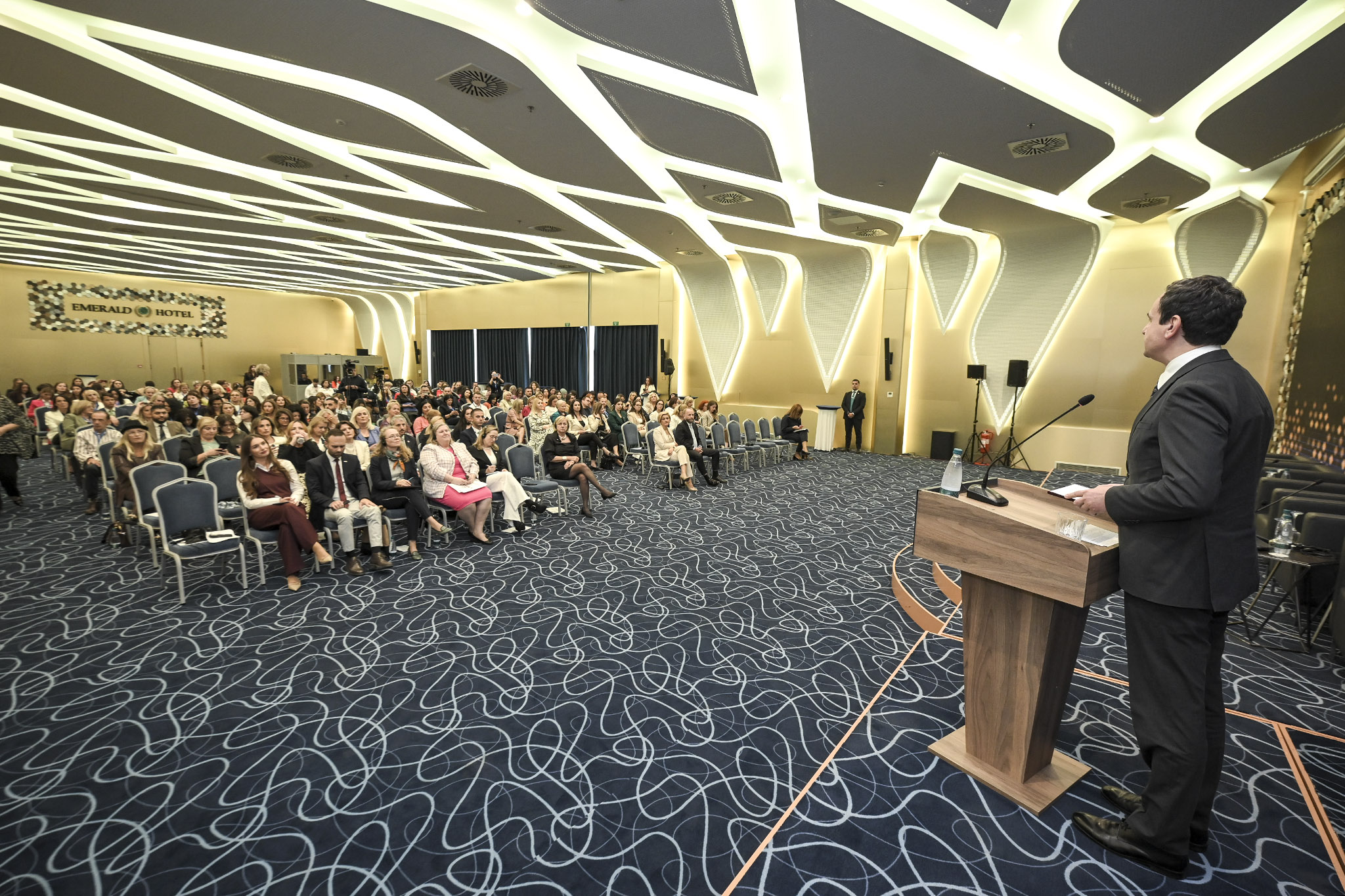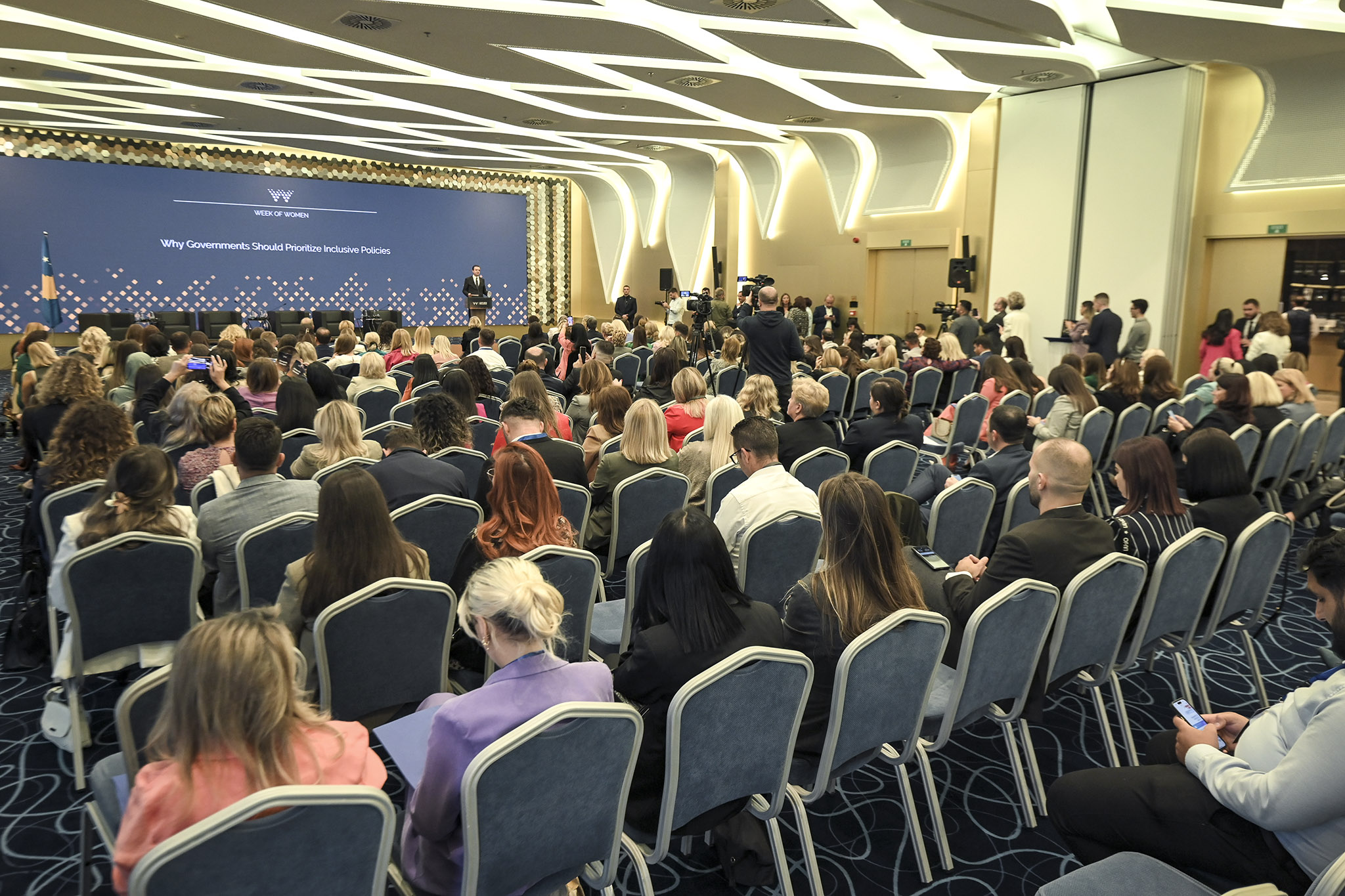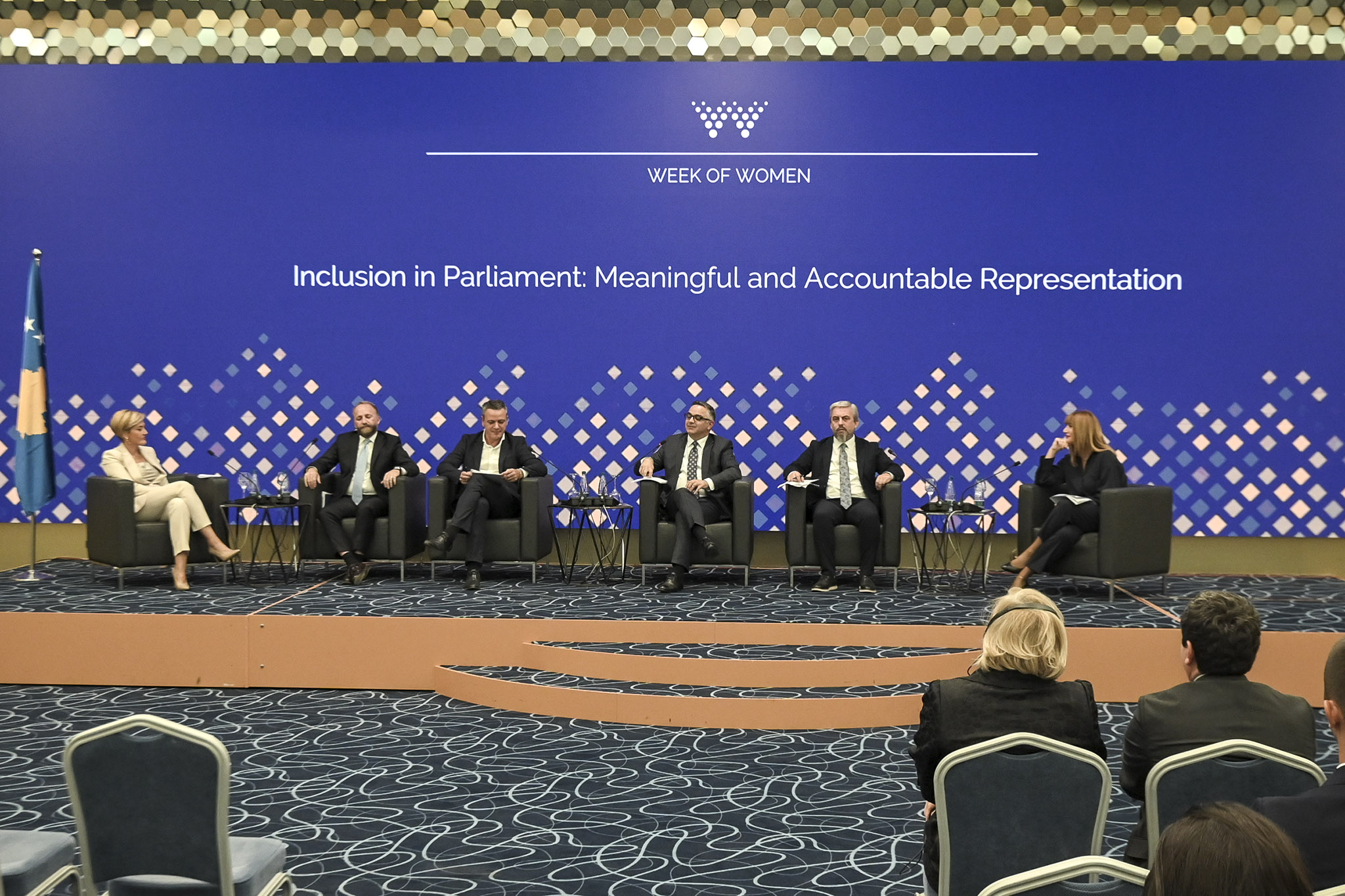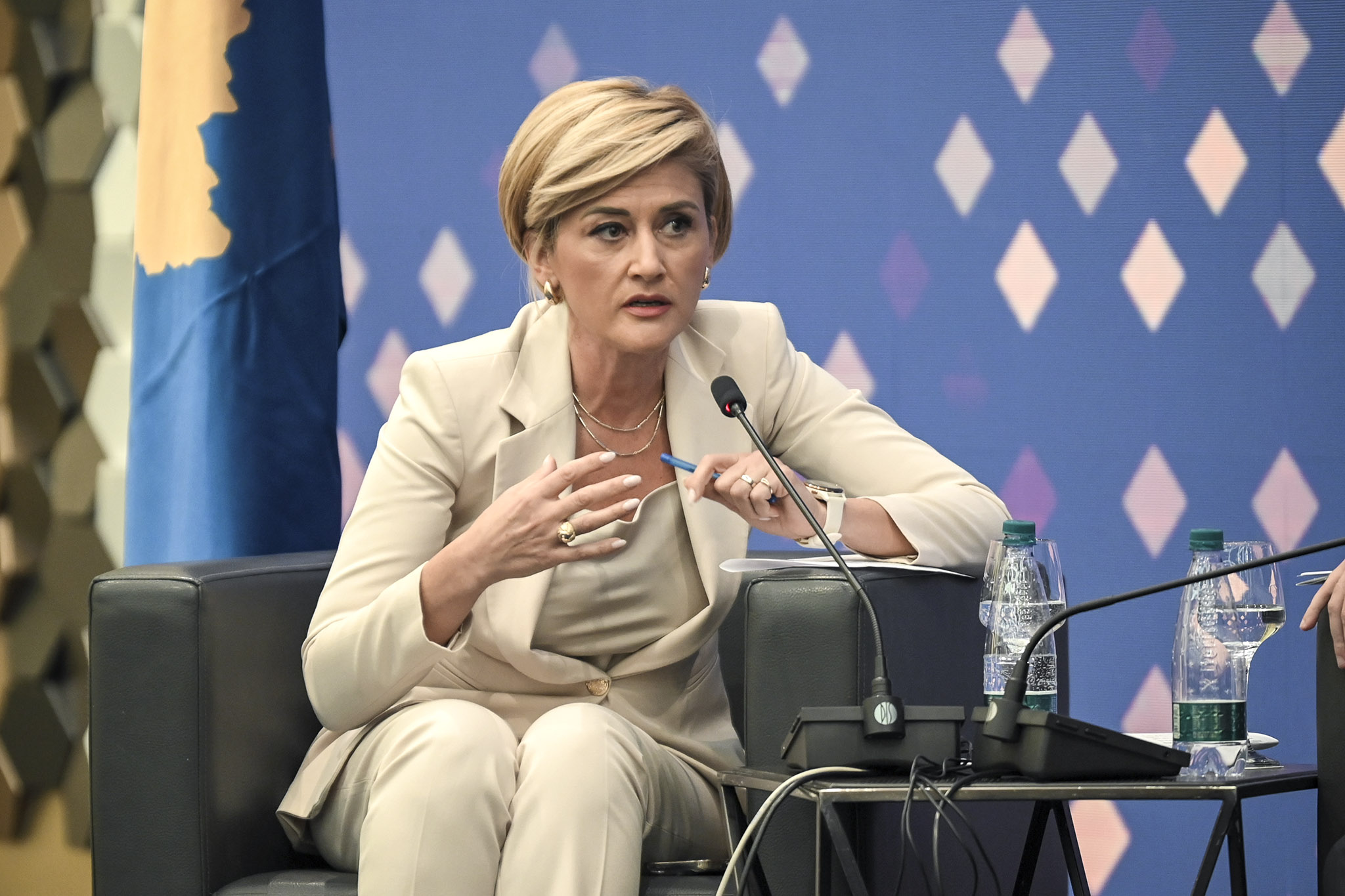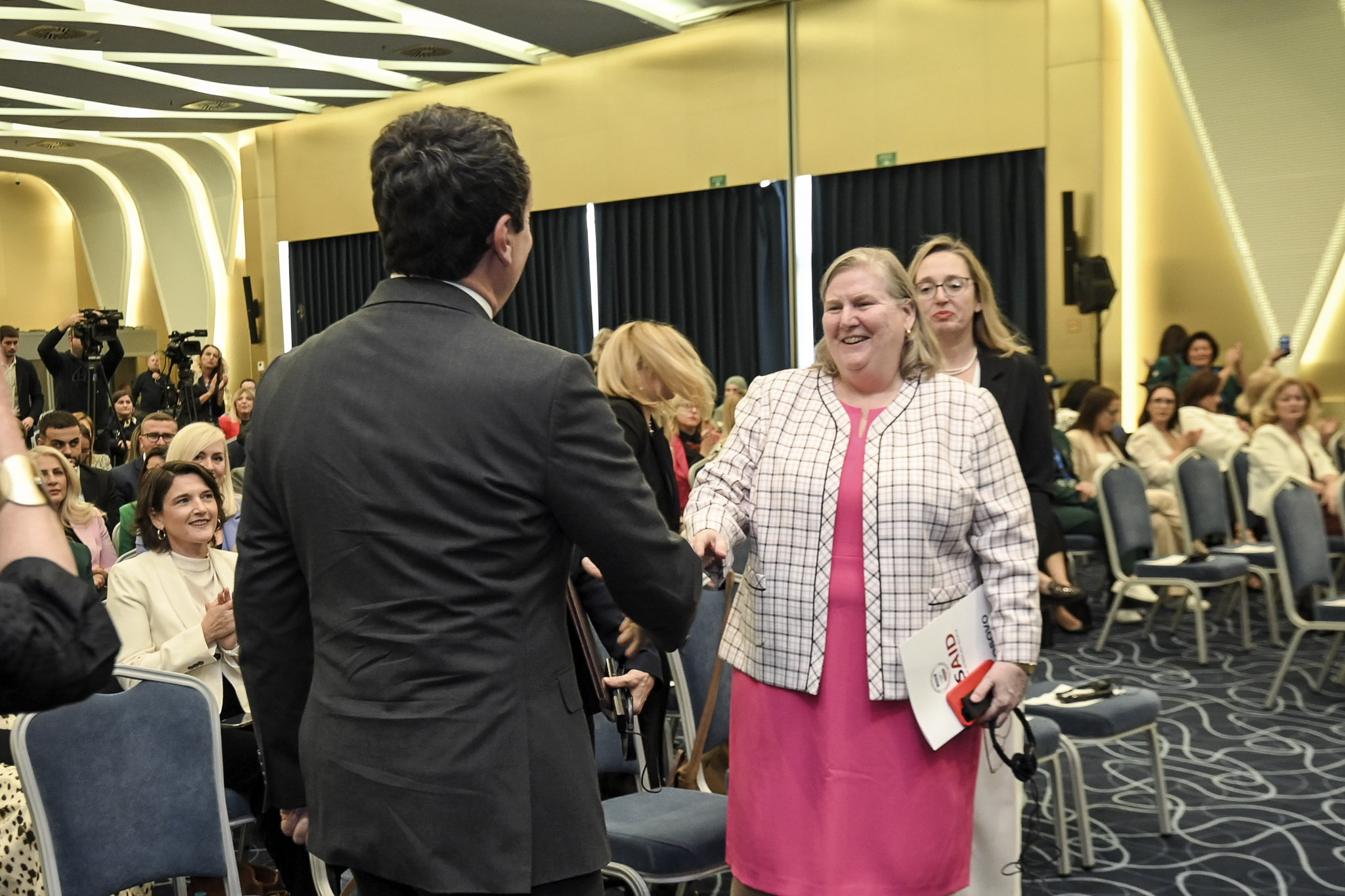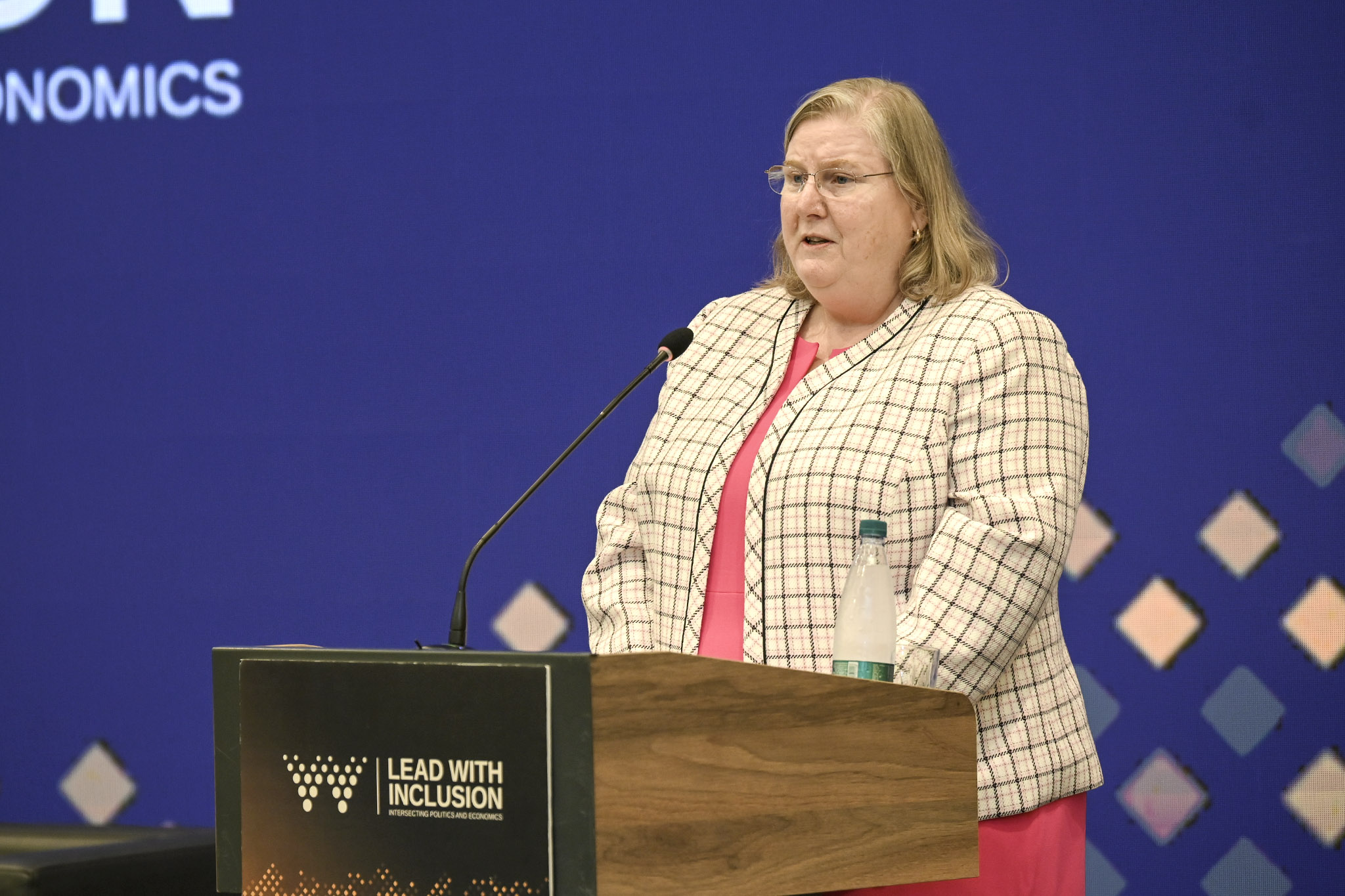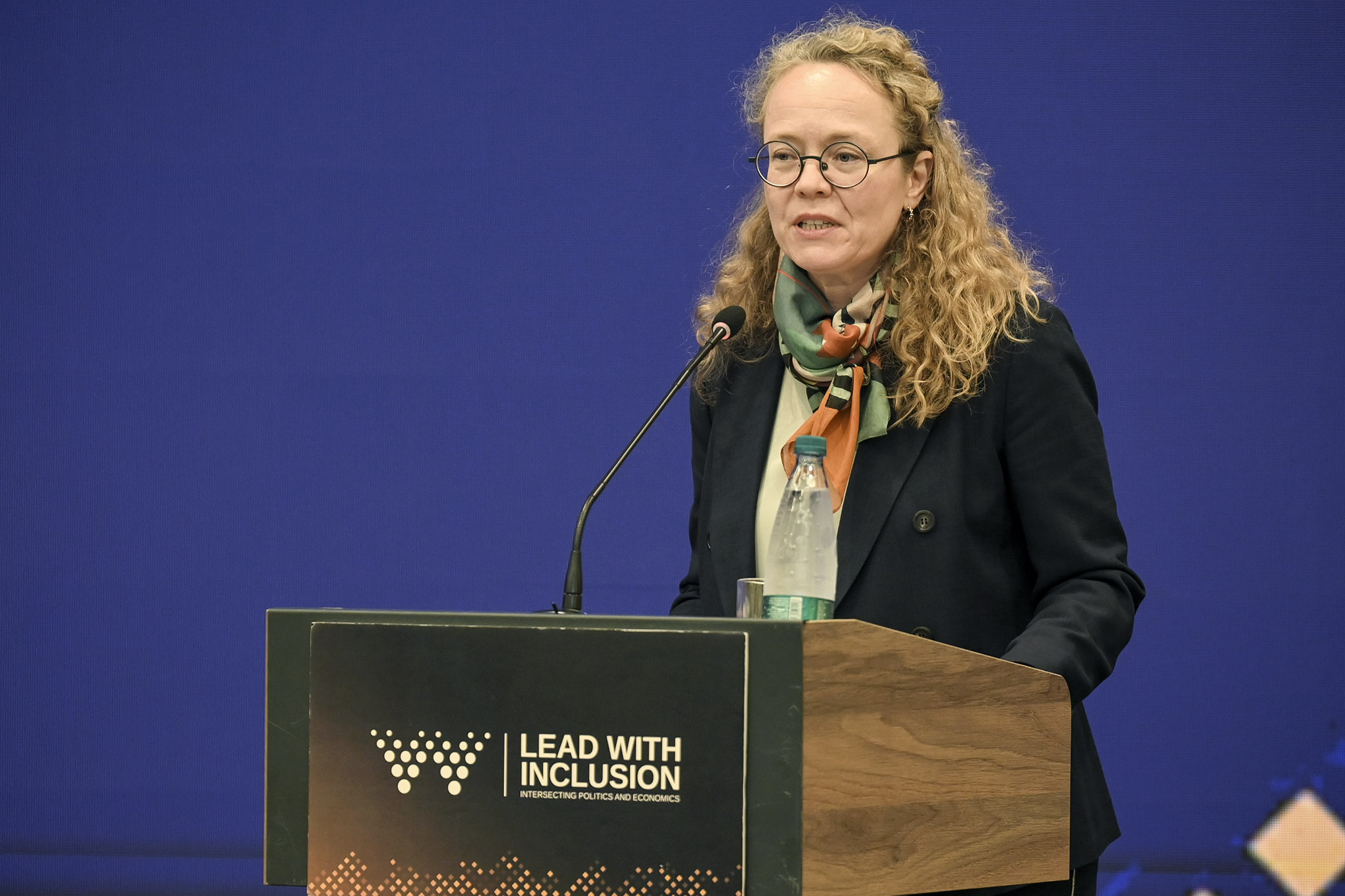Prishtina, 17 September, 2024
The Prime Minister of the Republic of Kosovo, Albin Kurti, participated in the closing conference of the Women’s Week, organized by NDI with the support of USAID.
“Women’s rights are human rights”, is the famous saying, which Prime Minister Kurti quoted during his opening speech, and about which he said that “respect for these rights is reflected in the fact that being a woman often means a danger in itself and when the right to be a woman is defended, it is often defended in relation to other members of society”.
“In Kosovo, gender inequality is deepened by the lack of economic access, which is closely related to other barriers that contribute to the oppression of women in society”, he declared.
According to Prime Minister Kurti, no government can claim to have a comprehensive plan for society without addressing gender equality, therefore investment in social welfare in Kosovo, for this reason, has a disproportionate effect on women.
Among the steps taken by the Government that contribute to strengthening gender equality, the Prime Minister mentioned the allowances for 60 thousand first-time mothers and the allowances for 400 thousand children under the age of 16. On the other hand, creating conditions that enable girls and women to develop in society is another step.
“The free education that we have made possible and the scholarships that are mainly given to girls and women, especially in the STEM fields, as well as the direct employment of 12 thousand women in the last three years – thanks to employment measures, including through the “Superpuna” platform, where 51 % of beneficiaries are women – these are valuable steps. Also, the last few years have marked a record number of women in decision-making positions in public institutions, including public enterprises, where we have quadrupled their participation from 10% to nearly 45%,” said Prime Minister Kurti.
During the Government’s mandate, as the Prime Minister said, important legal reforms were also introduced, especially in relation to domestic violence and sexual violence, free legal aid for victims of domestic violence and violence against women, as well as an increase in the budget for shelters and organizations that provide social services.
In this conference, the prime minister repeated the call for cooperation between the state and society, so that fair and good laws interact with gender solidarity and public and political activism.
For more than a decade, “Java e Gruas ” has empowered new generations of leaders in Kosovo, advocating women’s participation in politics and laying the foundations for a more inclusive democracy.
Prime Minister Kurti’s complete speech:
Dear members of the Assembly of the Republic of Kosovo,
Dear Ms. Nancy Soderberg, director of the NDI Office in Kosovo,
Dear Ms. Jessica Blitt, Ambassador of Canada to Kosovo and Croatia,
Dear Ms. Eileen Devit, head of the USAID Mission in Kosovo,
Dear Ms. Beate K. Elsaesser, head of the Cooperation Office from the Swiss embassy in Kosovo,
Dear attendees,
Ladies and gentlemen,
First, I thank you for the invitation and congratulate you on the organization.
Gender equality is at the core of social equality, while social equality is what gives meaning to economic development, economic growth, because it is precisely through it that development and growth become progress for everyone.
I believe that no government can claim to have a comprehensive plan for society without also addressing gender equality, namely gender inequality. This of course implies that democracy, even if imperfect, differs greatly in what it offers on a gender basis. And women everywhere have been offered a much more imperfect version of that democracy.
Next year marks the 30th anniversary of the “Beijing Declaration. “On September 15, 1995, the states agreed to join a quasi-revolutionary reform to revise laws against gender discrimination and where Secretary of State, then first lady, Hillary Clinton famously said that “the rights of women are human rights”.
How much these rights have been respected is reflected in the grim fact that being a woman often means a risk in itself. And when the right to be a woman is defended, it is often defended in relation to other members of society: it is said to be someone’s daughter, someone’s mother or someone’s wife, as if existence in itself is not enough to have value.
Thus, moving from threats to life to a fully realized life for half of our population requires us to look at all aspects of society and address them as well.
For this reason, I am glad that today’s topic deals with the comprehensive nature, and that the title itself holds the economic and political intertwining of gender rights. A term that has always impressed me when it comes to gender inequality is “intersectionality” coined by Kimberlé Crenshaw from Columbia University, which describes the ways in which forms of discrimination combine. So, discrimination on the basis of gender and encountering economic difficulties creates a form of suffering, which is deeper than experiencing only a difficult financial situation.
We see this phenomenon with all the geopolitical developments. Global crises affect those who are discriminated against on other grounds the most. For example, the global food crisis is reported to affect 150 million more women than men.
In Kosovo, gender inequality is deepened by the lack of economic access, which is closely related to other barriers that contribute to the oppression of women in society. For us as a government, it is critical to free the population from existential burdens and create space for citizens to address issues that cannot be resolved if survival is at stake. Investing in social welfare, therefore, has a disproportionate effect on women. The allowances we gave to 60,000 first-time mothers and the allowances for over 400,000 children under the age of 16 are efforts to strengthen a safety net.
The second step is to create conditions that enable girls and women to develop in society. The free education that we have enabled and the scholarships that are mainly given to girls and women, especially in the STEM fields, as well as the direct employment of 12 thousand women in the last three years – thanks to employment measures, including through the “Superpuna” platform, where 51% of beneficiaries are women – these are valuable steps. Also, the last few years have marked a record number of women in decision-making positions in public institutions, including public enterprises, where we have quadrupled their participation from 10% to nearly 45%.
During our mandate as a government, we also introduced important legal reforms, especially in relation to domestic violence and sexual violence, free legal aid for victims of domestic violence and violence against women, as well as an increase in the budget for shelters and organizations that provide services social.
The goal is not to boast of a single statistic, or even several, but to create a positive domino effect through a series of statistics that are related to each other. Economic support, economic and political empowerment, and strong legal protection are pillars that inform and support each other. Every obstacle that is removed in one area removes an obstacle in another area.
One-sided equality, which is not inclusive, is inequality.
The work we have done is the beginning of a path towards which we have set out, and it does not contain all our ambitions in this direction. Inequality is costing us all a lot, both morally and economically. And at this point we wish to have a cooperation, of the two main concepts of the Republic I would say, of the state on one side and of society on the other so that fair and good laws interact with gender solidarity and public and political activism .
And finally, the goal is not only inclusion but also participation, and again the goal is not only the participation of women in existing institutions, but the creation of an environment where perspectives and visions suppressed, not for years and decades but for centuries, will be able to be discarded and I want to walk together towards the realization of a new reality which is both possible and necessary. I believe this is the key to a geometric progression, I would say, and sustainable development for everyone, and above all for women.
Thank you.


